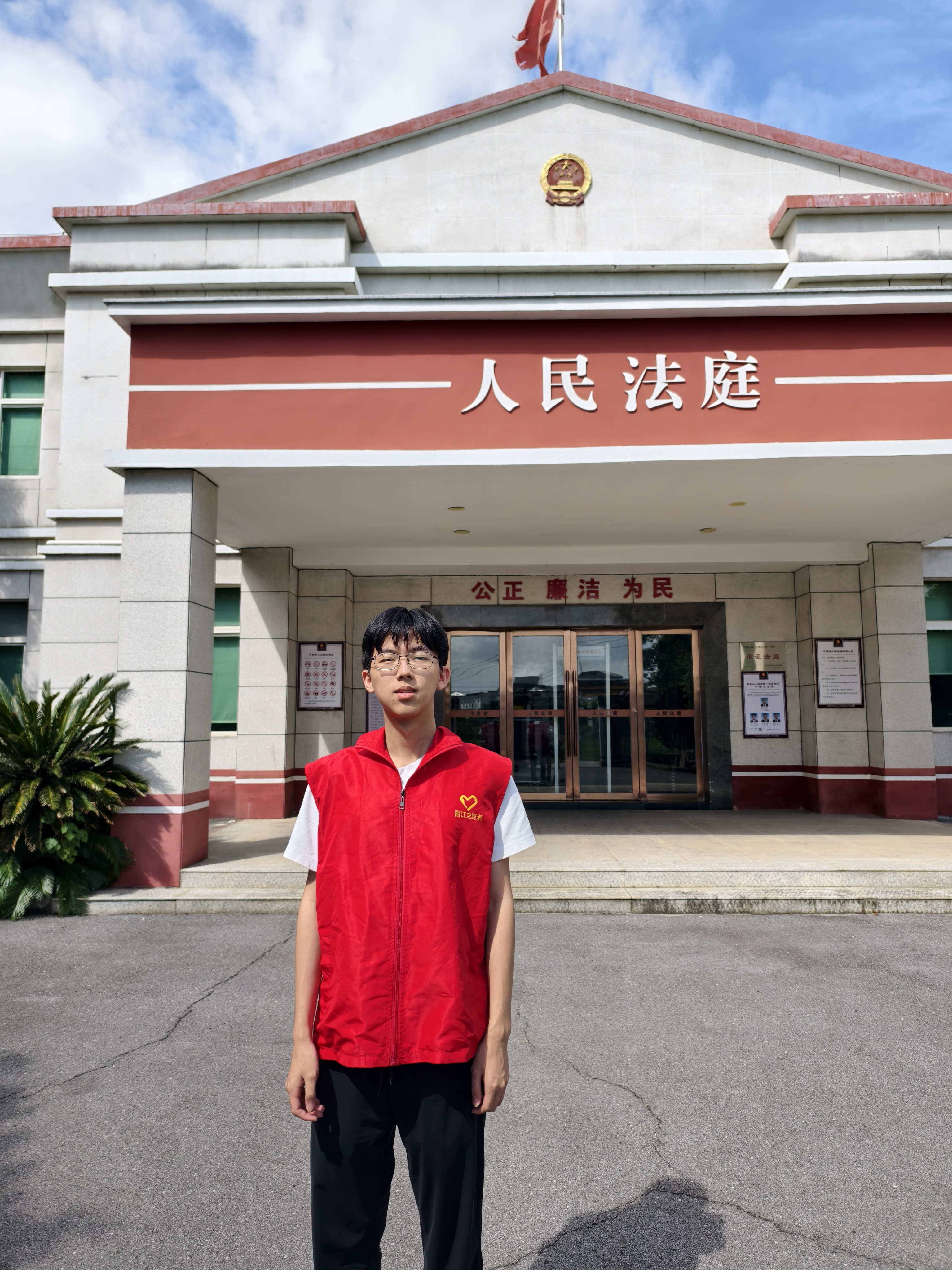Legal Clerk Intern at Jingdezhen People's Court
The motivation of the internship

At the Liuseshi Library, I interacted directly with low-income parents working as food delivery riders and construction workers. I was struck by their stories of workplace injuries without compensation. Through subsequent online search, I found that such cases often fall outside legal protection. This exposure sparked a strong desire to understand the root causes, leading me to seek a legal internship to investigate the systemic gaps behind these injustices.
What did I do?
I contacted district-level and even intermediate-level courts in Shenzhen, but they all rejected my request. During the summer vacation of 10th grade, I returned to my hometown, Jiangxi Province. By sincerely explaining my intentions, the People's Court of Jingdezhen City accepted my internship request. This was because in recent years, they had received a large number of labor dispute cases but were severely short-handed for archiving and managing the related documents.
Consequently, I pursued internships at the Jingdezhen People's Court during the summers following 10th and 11th grades. My work initially involved categorizing and scanning paper litigation materials to create electronic archives. Gradually, I began participating in front-desk consultation services for drafting complaints. Since many plaintiffs in civil cases were individuals with lower levels of education and income, I guided them in drafting the necessary information for their complaints, which helped them save the significant expense of hiring a lawyer to write them. Later, I progressed to helping guide workers through evidence collection and explaining procedures like work-related injury appraisal. These experiences made me feel the value of being needed.
What did I find?

During my internship, I was granted valuable opportunities to observe court hearings. In many labor dispute cases, I saw individuals who had suffered work-related injuries and lost their original capacity to work due to painful accidents, yet they received no legal support because the employing companies used shell companies to circumvent legal responsibilities. I felt an unprecedented sense of anger. Through discussions with the presiding judges, I learned that they sometimes felt helpless because China's labor law has not kept pace with the rapid development of many new forms of employment. This lag means that these specific labor relationships are not clearly defined or protected by existing legal statutes. These experiences made me profoundly aware that progress within the system requires dedicated efforts to promote reform, in order to reduce the suffering of innocent people.
